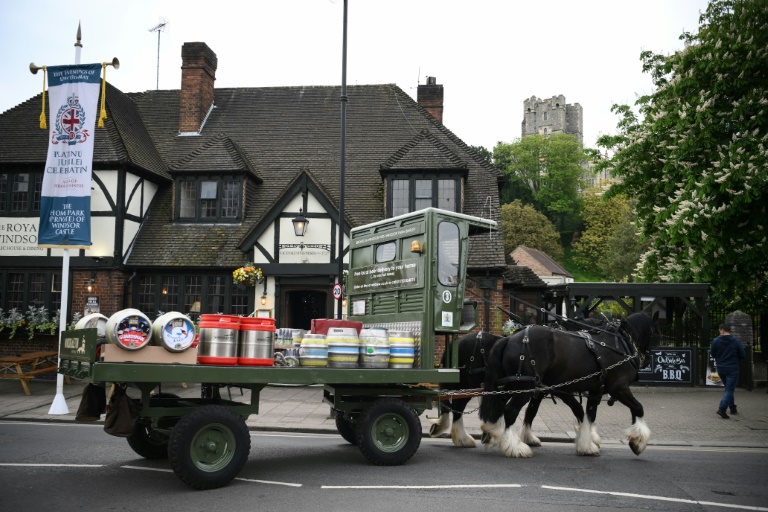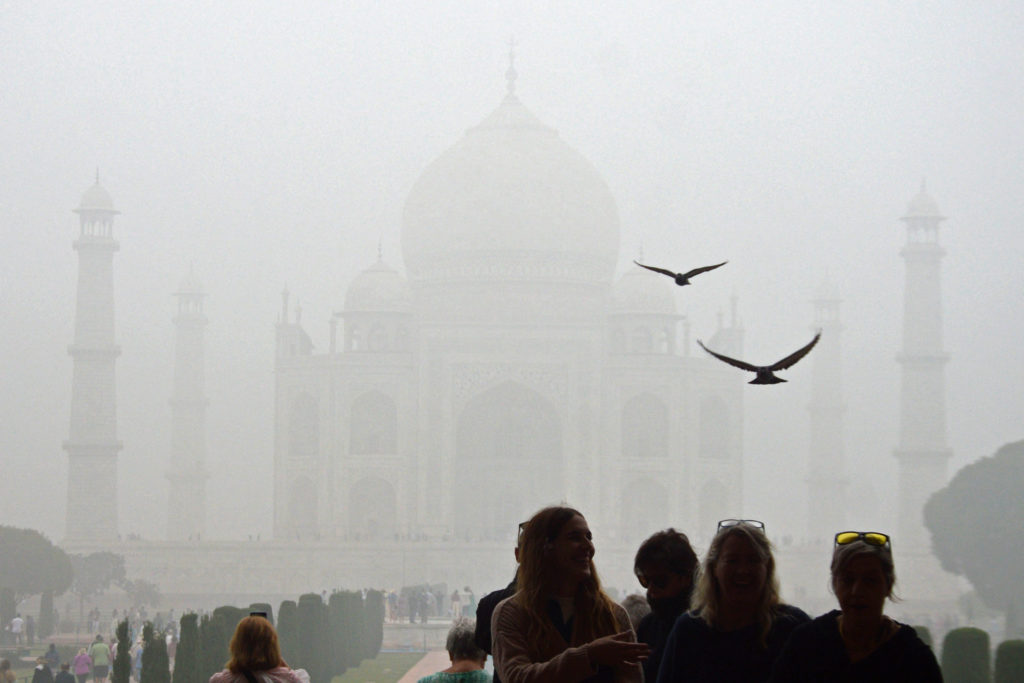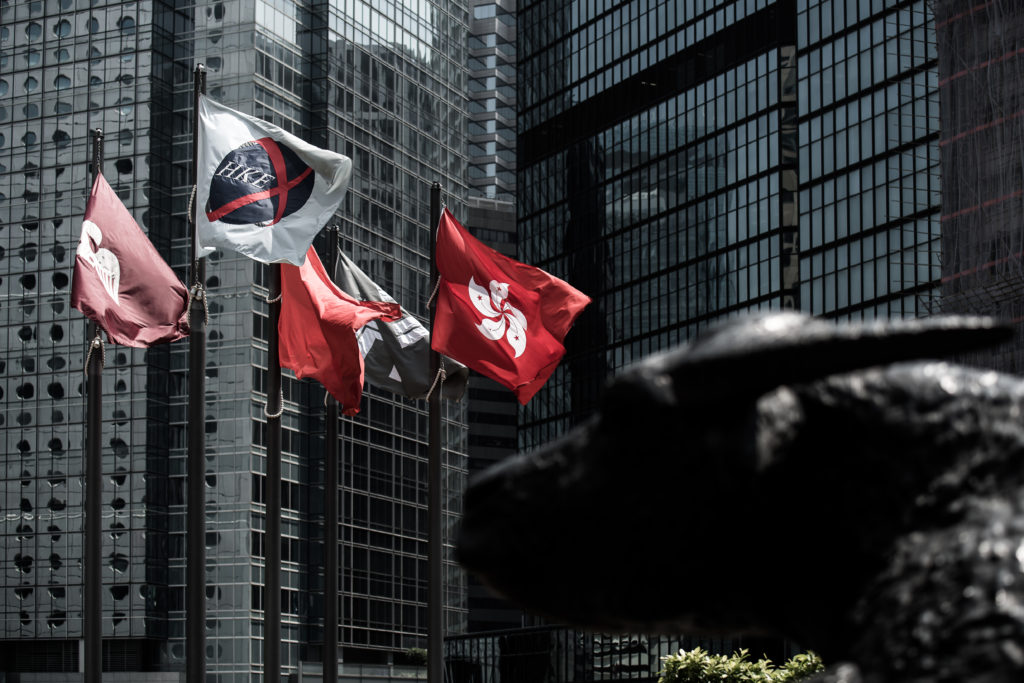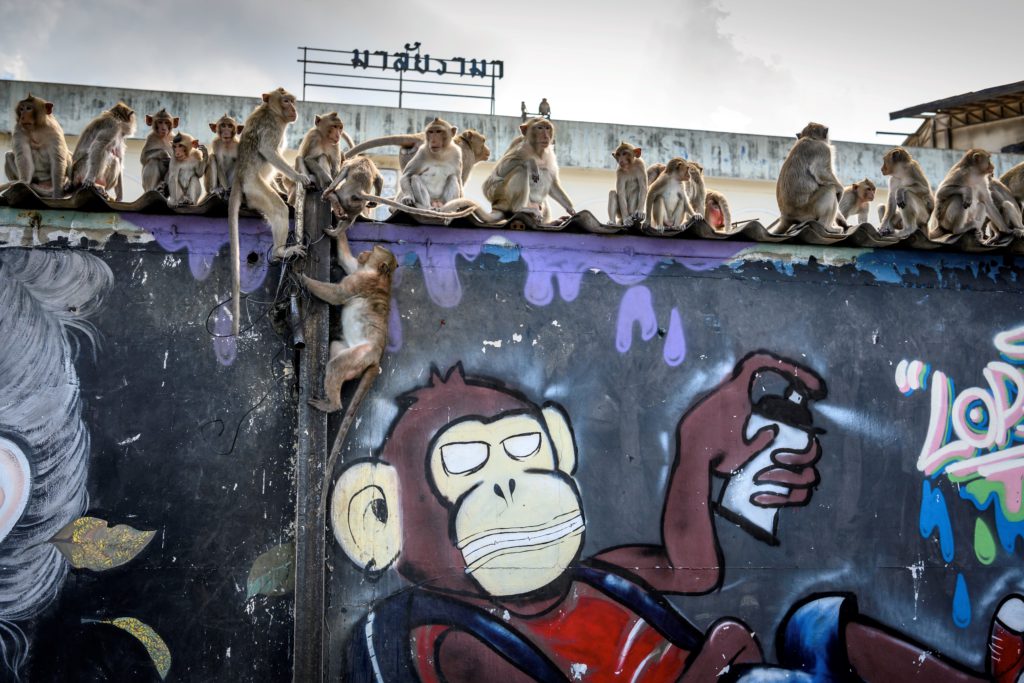Queen Elizabeth II’s Platinum Jubilee should provide a boost to Britain’s beleaguered retail and tourism sectors, but could also then slow the stuttering economy, analysts said on Wednesday.
Thursday sees the start of four days of festivities to mark the 96-year-old monarch’s record-breaking 70 years on the throne.
With two public holidays on Thursday and Friday, then the weekend, supermarket chain Co-op predicted “a bigger sales period than Christmas”.
“Sales are set to be booming in the run-up to the bank holiday weekend, with shoppers set to flock to the stores on Wednesday,” it added.
It forecast a 10-percent increase in wine sales alone, and was expecting to sell 500,000 bottles of sparkling wine and 30,000 bottles of Champagne.
Double the amount of English fizz was also predicted to fly off the shelves, as people look to toast the occasion with a taste of patriotism.
The UK government said more than 200,000 local events and street parties were expected to be held across the country over the four days.
VisitBritain, which promotes British tourism, said the celebrations could bring in some £1.2 billion ($1.5 billion, 1.4 billion euros) to the economy.
Some 5.3 million Britons are likely to take time off work, it added.
Co-op is expecting to sell 500,000 sausages and 400,000 packets of crisps and other snacks — 25 percent more than normal.
“The key lines such as bunting and flags have done very well this week along with beers, spirits and crisps,” the Morrisons chain said.
“Jubilee-themed products” such as corgi-shaped cakes, cupcakes and pies were also proving popular, a spokeswoman told AFP.
– ‘Hangover’ –
Susannah Streeter, an analyst at Hargreaves Lansdown, said grocers were “set to get a mini-boost in sales”.
At the same time, hotels and restaurants as well as tourist activities that were hit badly during the pandemic will benefit, she added.
VisitBritain estimates that Covid cost the UK tourism sector up to £97.1 billion in 2020 and 2021, mostly due to a lack of foreign visitors.
But Streeter said the extra-long weekend would likely see a “drop in productivity, as flag-waving, parties and barbecues replace hours punching keyboards and on factory floors”.
The Golden Jubilee celebrations in 2002 saw production fall by 5.4 percent, and it dipped again in 2012 for the queen’s 60th anniversary, she added.
“So don’t be surprised if a hangover comes in the form of a knock to economic output in June’s GDP (gross domestic product) snapshot after all the fun.”
But Michael Hewson, an analyst at CMC Markets, said historical data showed that any retraction would be temporary and productivity would bounce back.
In 2002 and 2012, he said, “we saw a strong rebound the following month”.
“If, as seems likely, the UK economy contracts in Q2 (second quarter) this year, the jubilee bank holiday is unlikely to be the primary reason,” he added.
Greater blame should be attached to consumers spending and travelling less in the midst of a cost-of-living crisis, as government taxes also go up, Hewson said.











